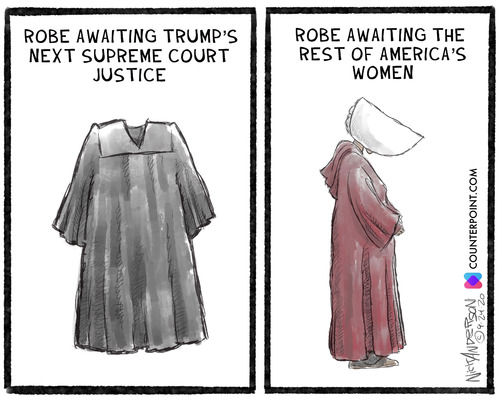Download this factsheet as a PDF here.
Background
In mid-September, Supreme Court Justice Ruth Bader Ginsburg passed away, leaving a vacancy on the Supreme Court. President Trump announced that he is nominating Judge Amy Coney Barrett to fill this Supreme Court seat, and the Senate is racing to confirm her prior to the election.
The Supreme Court decides issues of great importance on distribution of power, health care, civil and reproductive rights, criminal justice, the environment, and voting rights. PWN has created this fact sheet to inform our members of where President Trump’s nominee stands on some of the issues that impact our lives as women living with HIV.
On the Issues
Health Care Access
Her Record: Criticized the Supreme Court’s decision to uphold the Affordable Care Act (ACA), saying it pushed the ACA beyond “its plausible meaning to save the statute.”
Why It Matters: The ACA expanded Medicaid coverage and community health services, protected people with preexisting conditions (including people living with HIV) and did away with lifetime coverage caps, along with other important reforms.
If confirmed to the Supreme Court, Barrett will hear a challenge to the ACA on November 10 and will almost certainly overturn it, sending us all back to the dark ages of denials of coverage for people living with HIV, reductions in services and so much more.
Sexual & Reproductive Health, Rights and Safety
Her Record:
- Abortion: Called Roe v. Wade “barbaric” and signaled that she would overturn it.
- Birth Control: Criticized the ACA’s requirement that insurance companies provide birth control without out of pocket costs as a “grave infringement on religious liberty” & conflated emergency contraception with abortion.
- In Vitro Fertilization (IVF): Aligned herself with an organization which believes that discarding embryos created in the IVF process should be criminalized.
Why It Matters: Barrett will hear many challenges to reproductive rights during her time as a Supreme Court justice. Individuals need to be able to exercise control over their bodies to overcome discrimination and oppression. Taking away the right to an abortion, access to birth control, or the ability to form families impacts low-income women, Black women, and other women of color the most, because they also have to contend with harmful economic and criminal justice policies.
Women living with HIV also face HIV- and gender-related stigma and discrimination in accessing reproductive health care. All women should be able create families or choose not to create families without limitation based on ability to pay, gender expression or identity, HIV status, or race.
LGBTQ Rights, Safety, and Justice
Her Record: Misgendered transgender people; disagreed with the Supreme Court’s landmark marriage equality case; suggested Title IX protections do not extend to transgender people; and referred to sexual orientation as a “preference.”
Why It Matters: The Supreme Court will likely hear cases on transgender individuals’ access to sex-segregated facilities and other cases of discrimination in the next few years. Two other justices recently signaled that they are interested in overturning marriage equality.
We need fair-minded justices on the Supreme Court who will help dismantle stigma and discrimination against LGBTQ individuals not increase violence and barriers against them.
Economic Justice
Her Record:
- Racial Segregation: Signed off on a ruling that allowed employers to assign Black employees to different stores than non-Black employees based solely on their race.
- Age Discrimination: Found that the Age Discrimination in Employment Act allows employers to use hiring criteria that discriminates against older workers.
- Public Charge: Approved the Trump Administration’s discriminatory “public charge” rule, which discouraged immigrants from accessing health care, housing and nutrition assistance.
- Corporate Interests: Sided with corporations 76% of the time during her time as a judge.
Why It Matters: Economic insecurity can make individuals vulnerable to acquiring HIV and the government has already put policies in place making women living with HIV more likely to live in poverty. For example, the “public charge” rule punishes immigrants for using public assistance programs for which they qualify and intimidates their families into not accessing benefits out of a fear that such it could threaten their family members’ immigration status. This rule disproportionately impacts Black and Brown immigrants and makes those immigrant communities less likely to access needed assistance to feed their children and get health care.
Barrett’s willingness to reduce and restrict government-provided services and to allow employers to discriminate against their employees and job applicants will make it more difficult for women living with HIV to achieve and maintain economic security.
Check out our action alert to find out what you can do to stop Amy Coney Barrett’s confirmation.



